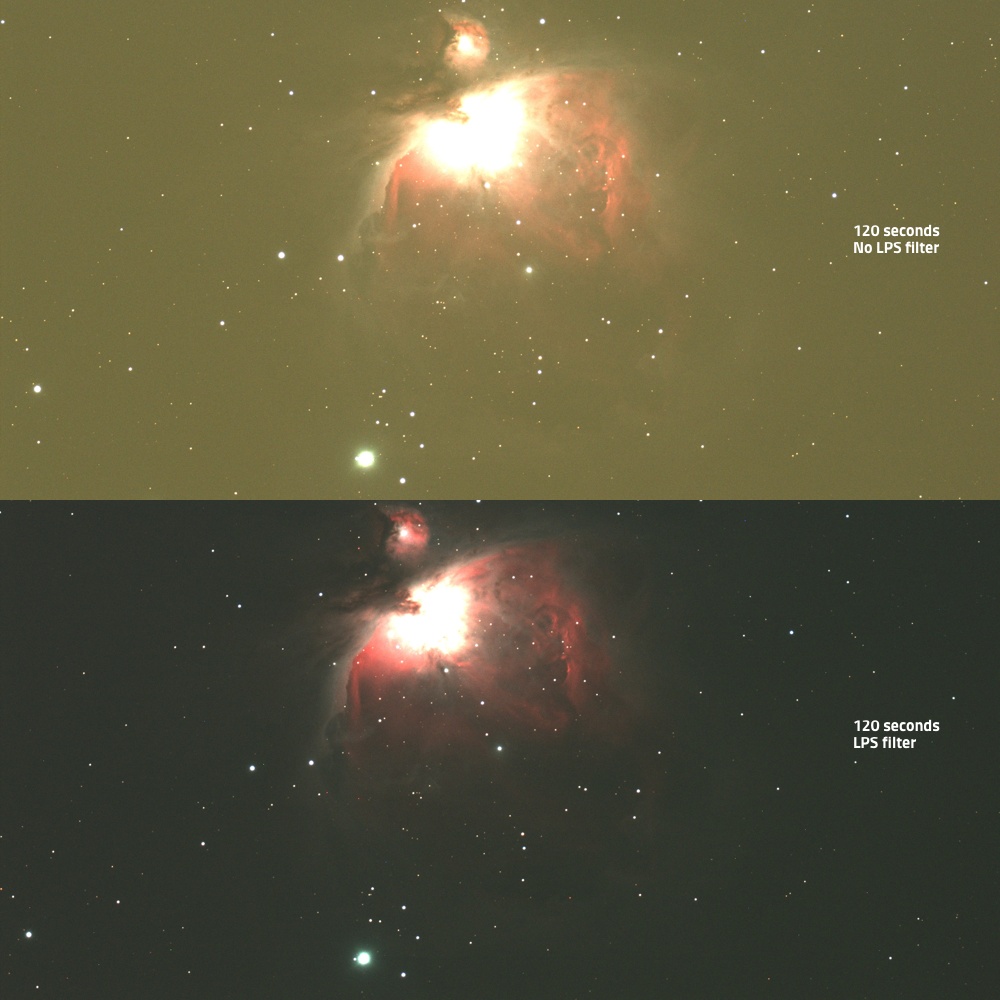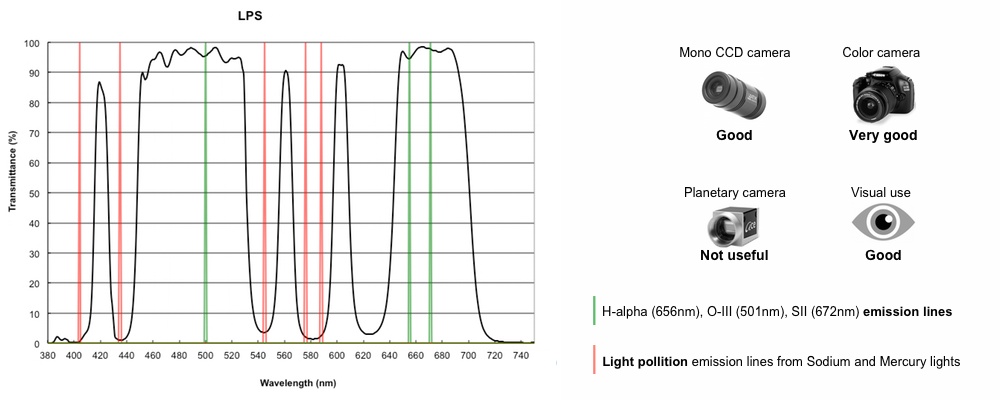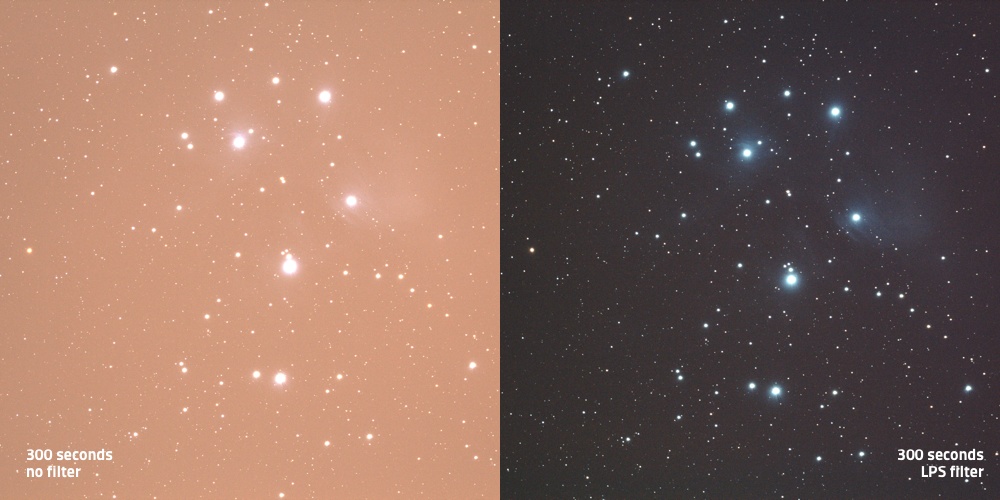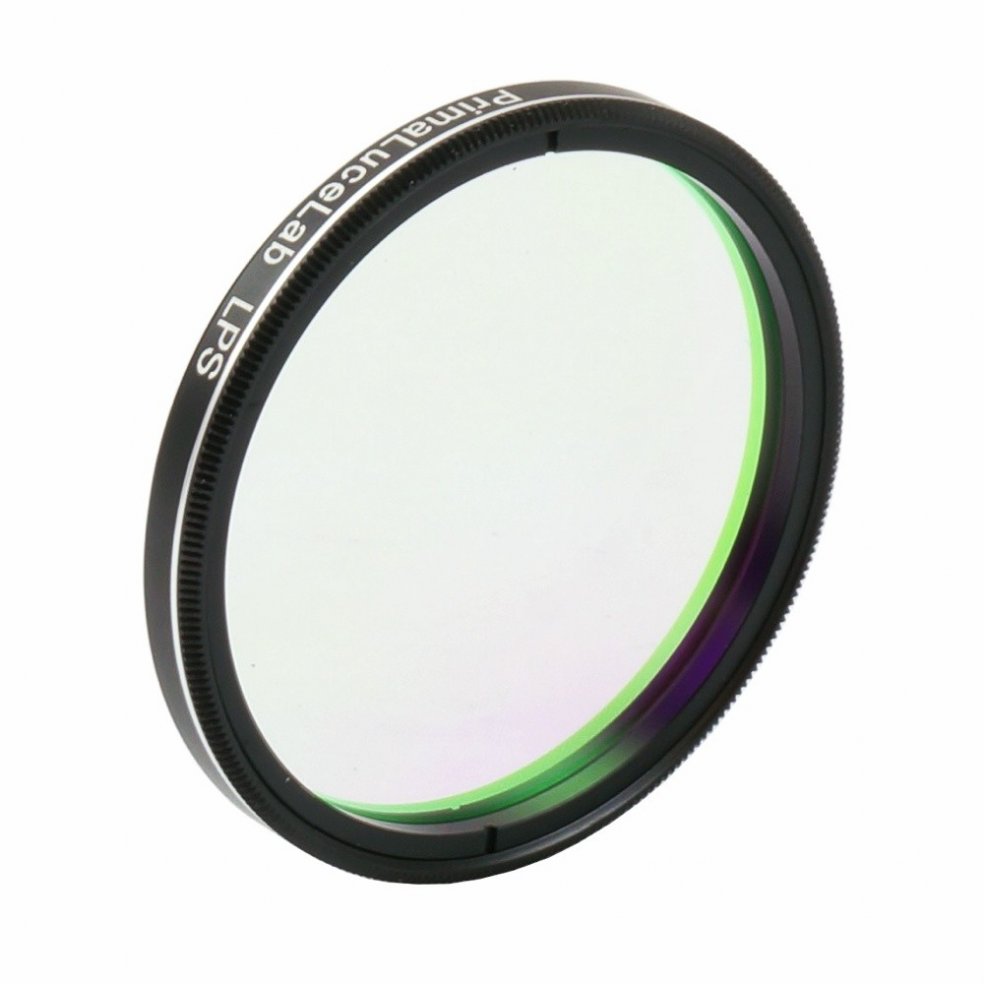FAST SHIPPING with express courier
Broadband nebula filter LPS 50,8mm
Light pollution greatly limits astrophotography, especially if you use color cameras (both DSLR and cooled CCD cameras). In fact, when we want to record colors in a single picture, we inevitably also record wavelengths corresponding to light pollution. In order to reduce this effect, often UHC or CLS filters are used but they vary the colors of photography.
Instead, our filter LPS (Light Pollution Suppression) filter, thanks to its particular bandwidth, reduces light pollution while maintaining a very good color balance. Decreasing the brightness of the sky background, it will let you double the possible exposure time improving your pictures!
Light pollution greatly limits astrophotography, especially if you use color cameras (both DSLR and cooled CCD cameras). In fact, when we want to record colors in a single picture, we inevitably also record wavelengths corresponding to light pollution. In order to reduce this effect, often UHC or CLS filters are used but they vary the colors of photography.
Instead, our filter LPS (Light Pollution Suppression) filter, thanks to its particular bandwidth, reduces light pollution while maintaining a very good color balance. Decreasing the brightness of the sky background, it will let you double the possible exposure time improving your pictures!
The image below shows the comparison of the M42 Orion Nebula recorded with the same AIRY APO120 telescope, the same color CCD camera and 120 seconds of exposure time. You can see that:
- the sky background without filter is highly "light polluted" while with the filter it becomes much darker and neutral
- the colors are not altered: the nebula maintains its red color while the star at the bottom (the lower limit of the picture) remains blue

By analyzing the transmissivity curve of our LPS filter, you can note that the main lines corresponding to light pollution are blocked while H-alpha, dell'OIII and SII lines can pass. The LPS filter also offers excellent multilayered antireflection treatment that doesn't generate ghost images and a quality substrate that doesn't introduce aberrations in the images.

Technical specifications:
It blocks main light pollution lines
It allows you to maintain a very good color balance with color CCD or DSLR cameras
Anti-reflective multi-layer coating to not generate ghost images
Quality substrate not to introduce aberrations in the images
Available in 50.8mm (2") diameter
The image below shows a comparison made taking picture of the Pleiades (M45) with AIRY APO80 telescope and Canon EOS 60D DSLR camera, both with 300 seconds exposition: left without filter, right with LPS filter.

- EAN code
- 8059020770976







A me mi crea sulla mia dsrl un gradiente rossastro a destra di ogni immagine e
un azzurrino alla sinistra. Fatto la prova anche con il flat field mi appare la stessa cosa. Non so se dipenda dal filtro o dalla mia Canon 600d